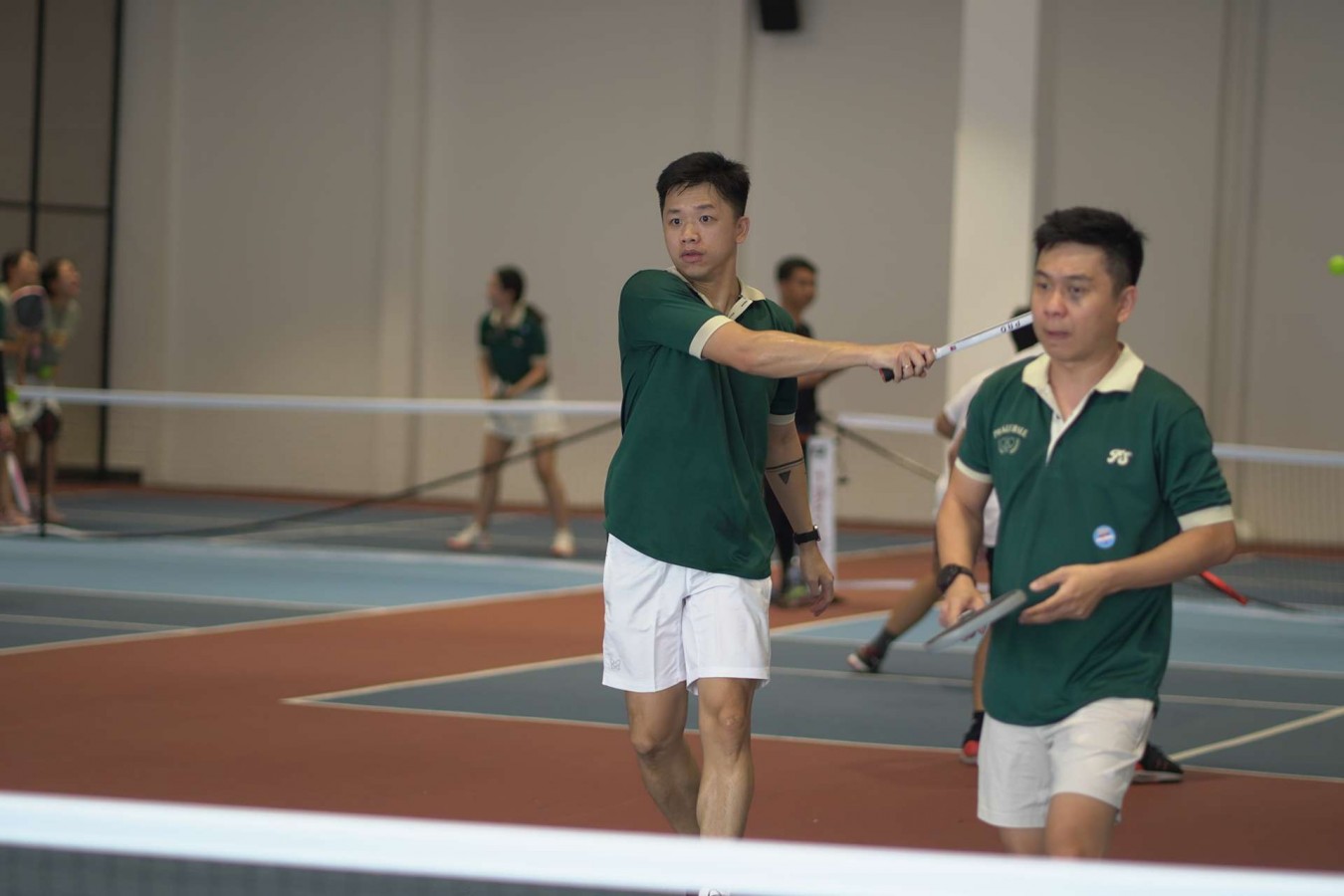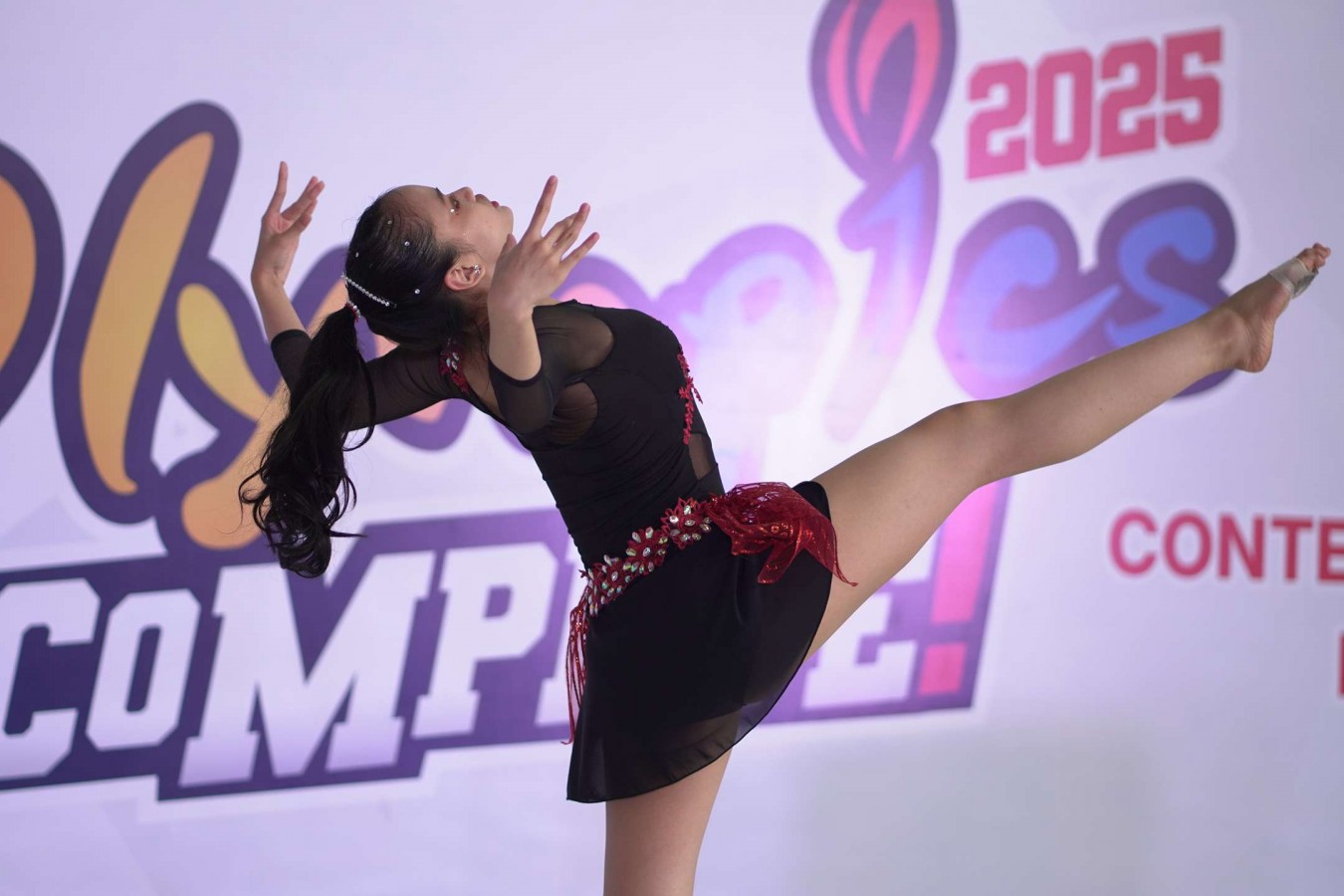Panduan Strategi Bermain Pickleball Ganda

Dengan reli yang menyenangkan, cepat, dan peraturan yang mudah dipelajari, pickleball adalah permainan yang bisa dimainkan siapa saja. Namun untuk menguasainya, terutama di nomor ganda, dibutuhkan strategi dan kerja sama tim yang cerdas.
Baik Anda seorang pemula atau ingin meningkatkan permainan Anda ke tingkat berikutnya, memahami cara bermain dan menang dalam permainan ganda pickleball adalah kuncinya. Dalam panduan ini, kami akan membahas aturan dasar permainan ganda dan strategi pickleball yang cerdas untuk mengalahkan lawan Anda.
Memahami Aturan Pickleball Ganda
Pickleball ganda memiliki peraturan yang unik dibandingkan dengan single. Setiap tim memiliki dua pemain yang harus bekerja sama dan berkomunikasi dengan baik. Hanya satu pemain yang mulai melakukan servis, dengan menggunakan gerakan di bawah tangan melintasi lapangan.
Setelah mencetak poin, server akan berganti sisi dan terus berlanjut hingga kedua pemain kehilangan servis mereka, yang mengarah ke "side out". Hanya tim yang melakukan servis yang dapat mencetak poin, dan permainan biasanya dimainkan hingga 11, menang dengan 2.
Aturan dua pantulan mengharuskan bola memantul satu kali di setiap sisi sebelum voli diperbolehkan. Pemain juga harus menghindari melakukan voli di zona non-voli, atau “dapur”, kecuali bola memantul di sana terlebih dahulu.
Strategi Pickleball Ganda untuk Memenangkan Lebih Banyak Pertandingan
Setelah Anda mengetahui aturan dasarnya, sekarang saatnya berbicara tentang kemenangan. Pickleball ganda membutuhkan penempatan posisi yang tepat, kesabaran, dan kerja sama tim. Berikut strategi terbaik untuk membantu Anda mendominasi lapangan:
1. Kendalikan Net Bersama
Dalam permainan ganda, mengendalikan net adalah salah satu keuntungan yang paling kuat. Berada di dekat net memberi Anda sudut yang lebih baik, memungkinkan Anda bereaksi dengan cepat, dan mempersulit lawan untuk memukul pukulan kemenangan melewati Anda.
Setelah melakukan servis dan pengembalian, penting untuk bergerak maju ke garis lapangan segera setelah aturan dua pantulan terpenuhi. Anda dan pasangan harus bergerak maju bersama dan tetap berdampingan di depan net.
Jika salah satu pemain mundur sementara yang lain berada di depan net, itu akan menciptakan celah dan membuka sudut yang bisa dimanfaatkan oleh lawan. Bekerja sebagai satu unit di depan net akan memberi Anda posisi bertahan dan menyerang yang kuat.
2. Gunakan “Pukulan Ketiga”
Pukulan ketiga adalah pukulan lembut yang dipukul oleh tim yang melakukan servis setelah pengembalian, yang dirancang untuk mendarat di dapur dan memberikan kesempatan kepada tim yang melakukan servis untuk bergerak ke net.
Alih-alih memukul bola kembali dengan kekuatan, tujuannya adalah untuk menjatuhkan bola dengan lembut ke zona non-volley.
Hal ini akan memperlambat laju permainan dan menciptakan kesempatan bagi kedua pemain untuk maju dan membangun posisi yang kuat di depan net.
Menguasai pukulan ketiga membutuhkan latihan, tetapi ini adalah salah satu keterampilan yang paling penting dan efektif untuk dimiliki dalam permainan ganda pickleball.
3. Selalu Berkomunikasi
Komunikasi yang baik membuat tim ganda menjadi tim yang hebat. Anda dan pasangan Anda harus selalu membicarakan tentang siapa yang mengambil bola dengan menyebut frasa seperti “Punyaku!” atau “Punyamu!” selama bermain.
Penting juga untuk mendiskusikan posisi selama reli dan berkoordinasi dalam strategi servis dan pengembalian bola agar tetap selaras.
Bahkan isyarat non-verbal, seperti kontak mata dan isyarat tangan, dapat sangat membantu dalam menjaga kelancaran permainan. Komunikasi yang jelas dan konsisten membantu menghindari kebingungan, membangun kepercayaan, dan membuat tim Anda lebih efisien di lapangan.
4. Stacking dan Berpindah
Stacking dalam pickleball adalah strategi di mana kedua pemain memulai di sisi lapangan yang sama untuk menjaga pemain yang kuat di sisi yang mereka sukai, biasanya untuk mengambil keuntungan dari pukulan forehand yang dominan di tengah.
Setelah melakukan servis atau pengembalian, salah satu pemain dengan cepat berpindah sisi untuk masuk ke posisi yang benar. Taktik ini dapat memberikan keunggulan bagi tim, terutama jika salah satu pemain memiliki kendali pukulan yang lebih kuat atau mobilitas yang lebih baik.
Menumpuk membutuhkan koordinasi yang baik dan gerakan cepat, tetapi jika dilakukan dengan benar, taktik ini menawarkan keuntungan posisi yang berharga yang dapat membantu Anda mengontrol kecepatan dan arah permainan.
5. Targetkan Lawan yang Lebih Lemah
Dalam banyak pertandingan, satu pemain mungkin kurang konsisten dibanding pemain lainnya, dan merupakan strategi yang cerdas untuk mengarahkan lebih banyak pukulan ke arah mereka.
Menargetkan pukulan backhand mereka, membuat mereka terus bergerak, dan memberikan tekanan yang stabil dapat menyebabkan kesalahan sendiri dan peluang yang terlewatkan di pihak mereka.
Pendekatan ini bukan berarti tidak sportif, ini tentang bermain dengan strategi dan membuat keputusan yang bijaksana yang meningkatkan peluang Anda untuk menang.
6. Bermainlah dengan Cerdas, Bukan Cepat
Sangat menggoda untuk memukul bola dengan keras, tetapi pickleball lebih mengutamakan kesabaran dan ketepatan daripada kekuatan fisik. Pukulan yang kuat dapat dengan mudah keluar dari batas atau membuat lawan Anda melakukan blok yang mudah. Sebagai gantinya, fokuslah pada dinking.
Bersabarlah dan tunggu saat yang tepat untuk menyerang, seperti saat lawan mengirimkan bola pop-up atau bola tinggi. Di nomor ganda, tim yang melakukan lebih sedikit kesalahan biasanya keluar sebagai pemenang, belum tentu tim yang melakukan pukulan paling keras.
Menangkan Pickleball Ganda Dengan Strategi Ini!
Menguasai ganda pickleball tidak hanya membutuhkan pemahaman yang kuat tentang peraturan permainan, tetapi juga kemampuan untuk menerapkan strategi cerdas yang membuat Anda dan pasangan selangkah lebih maju.
Setiap aspek permainan dapat memberikan dampak yang signifikan terhadap kinerja Anda. Bagi mereka yang ingin meningkatkan keterampilan mereka lebih jauh, Rockstar Academy menawarkan kelas pickleball yang berkualitas.
Sebagai program Akademi Olahraga & Seni Pertunjukan nomor 1, Rockstar Academy menyediakan pelatihan ahli dan lingkungan yang mendukung untuk membantu mencapai potensi penuh Anda.
Program pickleball kami di Rockstar Academy tidak hanya berfokus pada pengajaran dasar-dasarnya, tetapi juga memberikan kesempatan kepada para siswa untuk menguji kemampuan mereka dengan berpartisipasi dalam kompetisi yang menarik seperti RockOlympics dan Elite Championships.
Acara-acara ini membantu meningkatkan kepercayaan diri, mendorong sportivitas, dan memungkinkan siswa untuk merasakan sensasi permainan yang kompetitif.
Untuk membantu Anda memulai, kami juga menawarkan kelas uji coba gratis, sehingga Anda dapat merasakan kesenangan dan energi dari program kami sebelum berkomitmen. Ini adalah cara yang bagus untuk mengetahui apakah pickleball cocok untuk Anda dalam lingkungan yang mendukung dan menarik!
FAQ
Bisakah kedua pemain melakukan servis di nomor ganda?
Ya, setelah giliran servis pertama dalam permainan (di mana hanya satu pemain yang melakukan servis), kedua rekan setim di setiap sisi mendapatkan kesempatan untuk melakukan servis sebelum servis jatuh ke tangan tim lawan.
Di mana saya harus berdiri saat pasangan saya melakukan servis?
Berdirilah tepat di belakang baseline atau sedikit ke samping, siap untuk bergerak maju setelah pukulan ketiga. Pastikan Anda tidak menghalangi servis pasangan Anda.
Bagaimana saya tahu kapan harus melakukan poach?
Lakukan poach ketika Anda melihat pengembalian lemah yang dapat diprediksi menuju ke tengah dan pasangan Anda terlalu jauh untuk bereaksi. Perburuan membutuhkan antisipasi dan refleks yang cepat.



